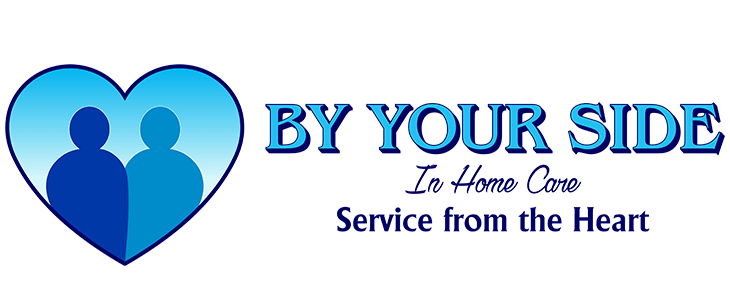The Heartbeat
Our monthly newsletter
April/May 2017
April 16 is National Healthcare Decisions Day. For those who have been named as health care proxies, we offer tips on making decisions in an emergency, just in case. This month we also look at strategies for supporting your personal relationship with the individual you care for. It’s far too easy—and not healthy for either of you—to let the to-do list take over. And finally, on the prevention side, we continue our series on pneumonia with a look at aspiration pneumonia. This lung infection is especially common near the end of life.
- Making medical decisions in a crisis
- Visits: more than just business
- Preventing aspiration pneumonia
Making medical decisions in a crisis
 If you are named as health care decision maker for your loved one, you may be called upon to make very important decisions on very short notice.
If you are named as health care decision maker for your loved one, you may be called upon to make very important decisions on very short notice.
At a time like this, it’s easy, and very human, to get caught up in fear. Fear does not make for the best decisions. If you can, call a friend and have them join you. Or call an Aging Life Care™ Manager. As an expert in aging well, he or she can help guide you through the process. You don’t have to do this alone.
Vicki Kind, ethicist and author of The Caregiver’s Path to Compassionate Decision Making, suggests these steps to promote your clearest thinking:
- Prepare a 911 list. Before a crisis—why not today?—create a reminder list to draw upon before rushing out the door. Do you have a child or pet you will need to arrange care for? An employer to inform? Do you have your necessary medications, food, and water? Maybe a sweater and a book, and paper for note taking? Phone charger? Your wallet?
- Steady your mind. Give yourself a few minutes to use a calming strategy: pray, call someone, walk around the block. Focus on the positive, “I can stay clear-headed and do what’s needed.”
- Clarify the timeline. You may hear that a decision is needed “now.” Ask what “now” really means. In the next hour? Or by 5:00 pm tomorrow?
- Gather information. Ask about all the options. In addition to the benefits for each one, ask about risks and possible negative outcomes. Find out about the long-term consequences.
- Review and decide. Reread your notes. Consider the options next to your loved one’s values and priorities. Talk things through with a friend or trusted professional. Perhaps create a spreadsheet of pros and cons for each option. Confirm for yourself the logic of your thinking, and go forward with your decision.
Visits: more than just business
 Stretched for time? No one knows that feeling better than family caregivers. There’s so much to do and so little time to do it.
Stretched for time? No one knows that feeling better than family caregivers. There’s so much to do and so little time to do it.
Although productive and practical, a task-focused visit can inadvertently demean the person you care for. No one wants to be reduced to an item on the to-do list! For the receiver, there’s a big difference between feeling cared about and being cared for.
These suggestions may help you make your visits more than just business:
- Slow down. Take a tip from Dr. Dennis McCullough, author of My Mother, Your Mother: Embracing “Slow Medicine,” the Compassionate Approach to Caring for Your Aging Loved Ones. Elders operate at a different pace than the work world. Before you walk in the door, take a few deep breaths and intentionally move out of the fast lane. Make “savoring the moment” one of the highest priorities on your to-do list.
- Break up the routine. Convenient as it is to have a standing date, it can make both of you feel obligated. Aim for some flexibility and choice. If you always take Mom shopping on Saturday morning, consider setting up a bonus Wednesday visit for dinner. Or a video. “Date night” with a parent can do much to preserve their self-esteem and remind you both that there’s a relationship there beyond the realities of elder care.
- Allow them their dignity. Humans have a strong need to reciprocate when given to. Otherwise they feel like a “freeloader” or “burden.” Consider ways your loved one can give back. It does not have to be material gifts. Let them know you value their stories, humor, wisdom, or other treasures they can share over tea or coffee.
Whether you visit once a week or once a year, remember that the reason you are there is much larger than the things that have to get done.
Return to topPreventing aspiration pneumonia
 People with advanced and end-stage dementia are prone to pneumonia. A lot.
People with advanced and end-stage dementia are prone to pneumonia. A lot.
This is not the kind of pneumonia you can get a vaccine against.
With advanced dementia, the body does not reliably close off the esophagus to prevent inhalation of particles of food or drink. When food or liquid slip into the lungs instead of the stomach, it can lead to aspiration pneumonia.
Ways to prevent aspiration pneumonia:
- Rest for 30 minutes beforehand
People who have been active before eating have more trouble swallowing. - Sitting up to eat
Make sure your loved one is sitting up at 90°. Preferably at the table. - Calm, leisurely meals
Rushed eating is more likely to result in food going down the wrong pipe. - Reduce distractions
Present one food at a time. Smile encouragingly, but minimize conversation. Talking is distracting. It increases the risk of aspiration. - Small bites and sips of water
Food goes down more easily when cut into small pieces, especially if alternated with sips of water. - Tucked chin when swallowing
Lowering the chin toward the chest seems to line up the throat in a favorable angle. - Regular oral hygiene
Brushing teeth twice a day removes food particles and bacteria. The use of nonalcohol mouthwash can also help.
Thickened liquids
Thickened juices seem to cause fewer swallowing problems. But many people dislike the texture. As a result, they reject fluids altogether. That can lead to dehydration, which brings other problems, such as bladder infections. Instead of thickening, try high-liquid foods, such as jello, watermelon, and sorbet.
Consider a palliative care consult
If your loved one has trouble with aspiration pneumonia, you might ask for a palliative care consult. These specialists can help with strategies and treatment decisions.

